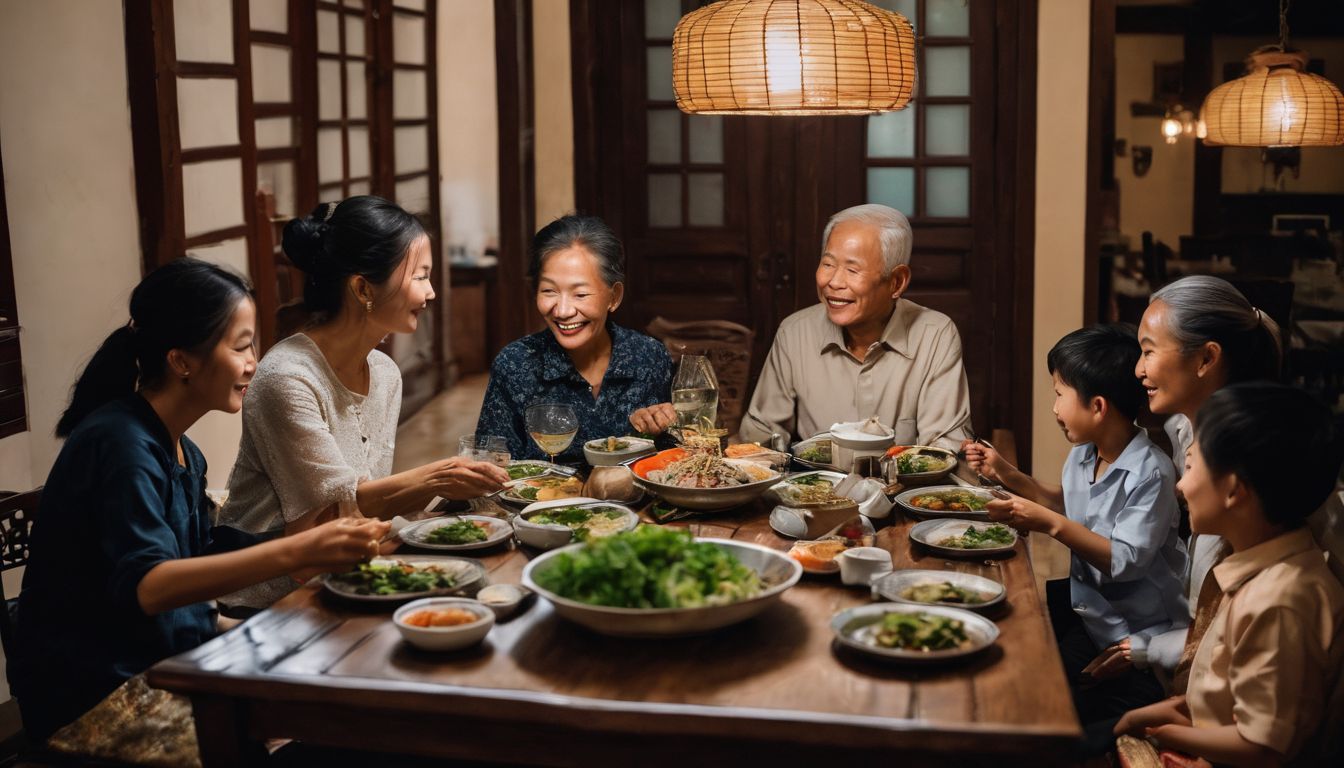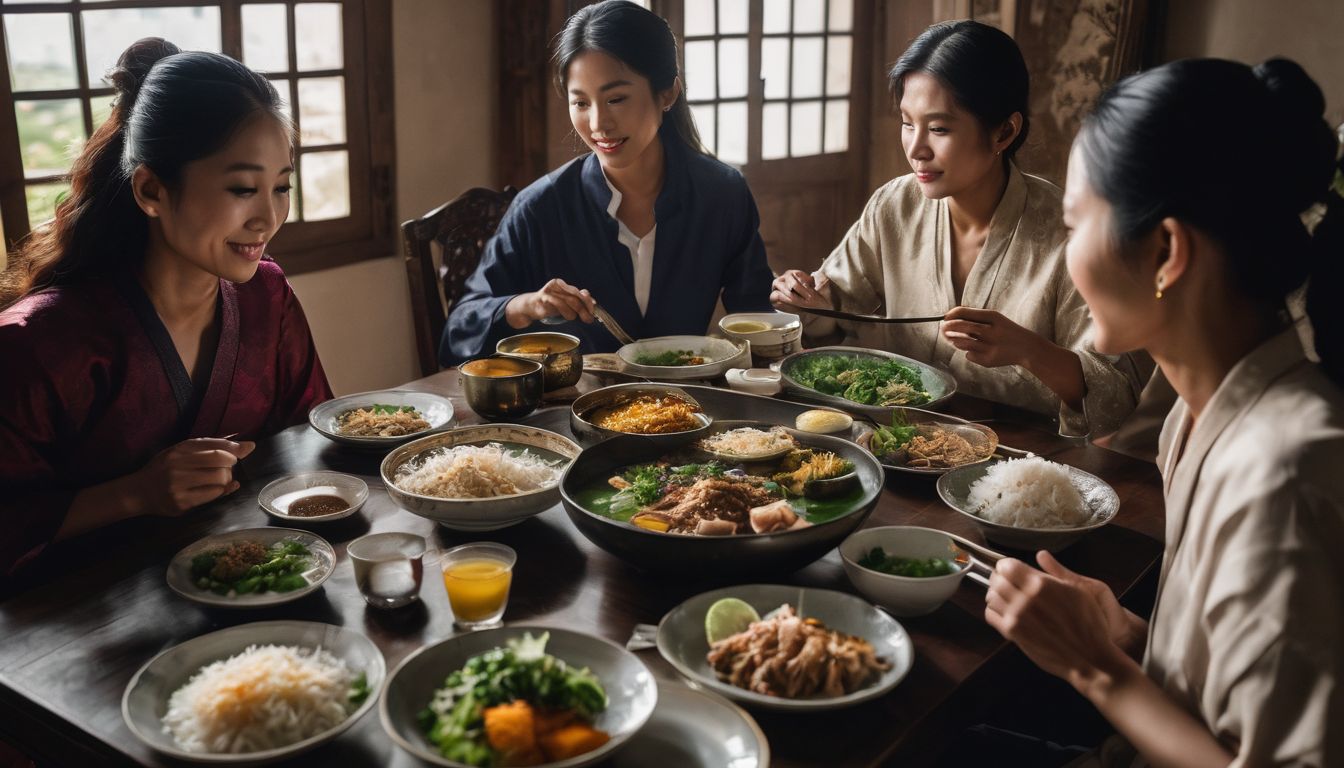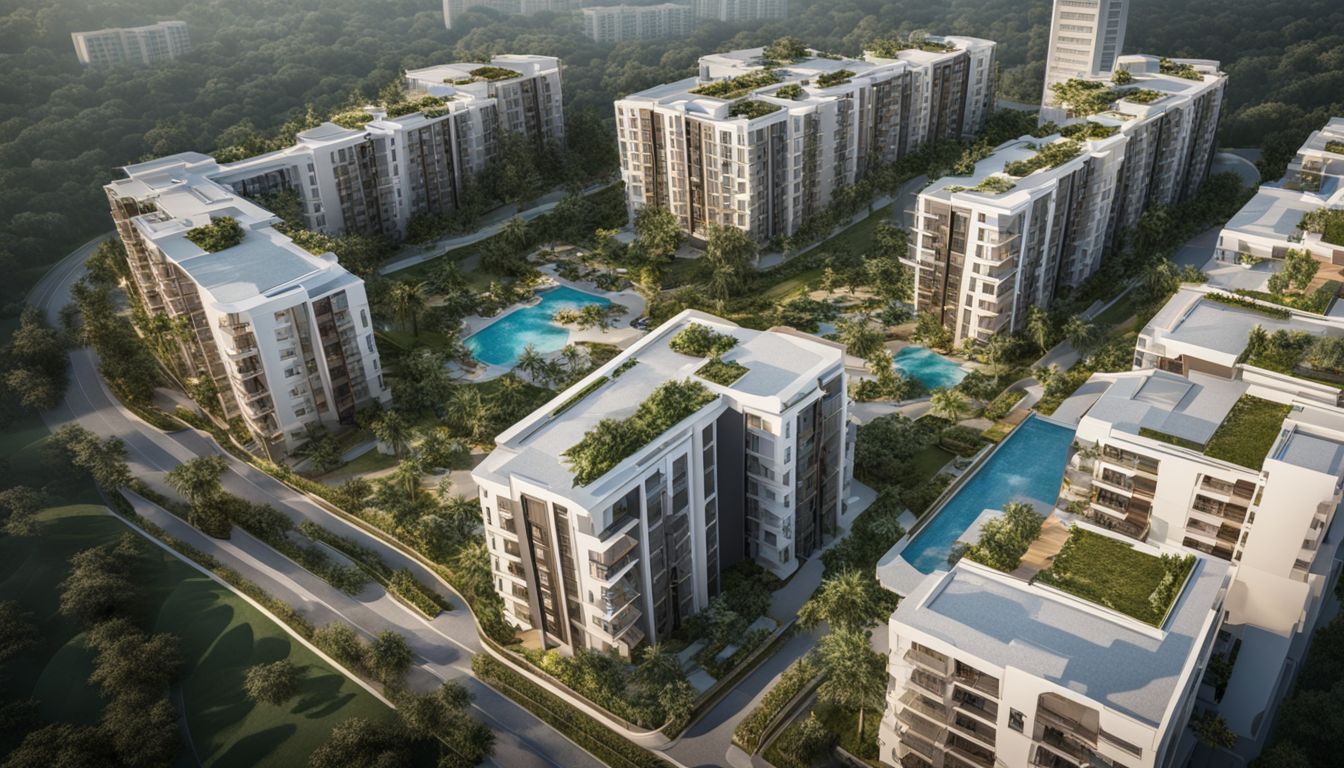Have you ever found your thoughts meandering towards the intriguing aspects that shape housing preferences within the Vietnamese community? You’re certainly not alone! It’s a topic sparking curiosity far and wide, not least because research indicates that housing prices in Vietnam are skyrocketing at 20 times higher than the average annual income there.
Diving headlong into this blog might just fill in some blanks for us as we unravel these cultural subtleties, analyze urbanization’s influence on Ho Chi Minh City’s evolving skyline, and gain insights into how societal shifts have swayed their choices.
So come join us on this riveting journey through Vietnamese living spaces – who knows what enlightening nuggets we’ll pick up to sprinkle into our own neighborhoods!
Key Takeaways
- Urbanization and population growth in Vietnam have led to a housing shortage, particularly in Ho Chi Minh City.
- Cultural preferences, family dynamics, and gender roles significantly influence the housing choices of the Vietnamese community.
- Providing affordable and sustainable housing solutions is crucial for addressing the unique needs of the growing Vietnamese population.
- Potential strategies include building more affordable housing options, implementing government policies that promote sustainable development, and encouraging public-private partnerships.
The Impact of Urbanization on Ho Chi Minh City’s Housing Development
 Urban growth in Ho Chi Minh City has been fast. It started to speed up more after Doi Moi policy came into play in 1986. People from the country side started to move to the city and this made homes hard to find.
Urban growth in Ho Chi Minh City has been fast. It started to speed up more after Doi Moi policy came into play in 1986. People from the country side started to move to the city and this made homes hard to find.
The city grew faster than factories could be built.
Changes also happened in who can own land and buildings. This changed how the city was planned and made it look different. But not all changes are good for everyone. For poor people or those who just moved, it’s harder to find a place live because of what is happening in the middle of the city.
Housing is a big problem as the population grows. The way houses are built must change if we want to take care of everyone living here now and those coming later on.
Research Methods Used to Understand Vietnamese Housing Preferences

The research on Vietnamese housing preferences uses many tools. One powerful tool is the Theory of Planned Behavior (TPB). This tool helps us guess if people will want to buy green and sustainable homes.
City life and country life in Vietnam are different. The study looks at both to get a clear picture. Key factors that shape housing choices come under scrutiny too.
Price is always important when buying a home. In Vietnam, there are two big cities – Ho Chi Minh City and Hanoi. Prices for apartments here can be high or low depending on several things, which the study tries to find out.
Many young people live away from home for studies or work in Vietnam. Their needs vary from those who have families or own houses already. And this is an area that research dives into as well.
Unique Housing Needs of the Vietnamese Community

The housing preferences of the Vietnamese community are shaped by cultural traditions, family dynamics, and gender roles. Understanding these unique needs is crucial for developing housing solutions that meet their expectations and enhance their quality of life.
Cultural preferences

In Vietnam, we value our culture a lot. Our homes show this love for tradition. Many of us like homes that let us follow our customs easily. For example, we have a special place in our house to honor our ancestors.
This is very important in the daily life of many Vietnamese families. We also respect the elders in our community very much and take care of them at home because there are not many places for old people to live.
Also, due to Chinese influence in the past, some Vietnamese groups still use their own language and rituals at home. While talking about gender roles, men usually make big choices like buying a house while women handle daily tasks inside the house.
Importance of family and social dynamics

Understanding the importance of family and social dynamics is crucial when examining the housing preferences of the Vietnamese community. In Vietnamese culture, extended families are highly valued, and sibling relationships play a significant role in their family structure.
This emphasis on cohesive families influences their housing needs and preferences. Additionally, gender roles and marriage customs also impact housing choices within the community.
It is essential to consider these factors when addressing the unique housing needs of the Vietnamese population.
Gender roles

In Vietnamese society, traditional gender roles play a significant role in shaping housing preferences. Men are expected to be the primary earners, while women are responsible for household duties.
This patriarchal society often relegates women to subservient roles and limits their career opportunities. Cultural and networking barriers further hinder women’s advancement, reinforcing gender inequality.
The strong preference for male children also contributes to this imbalance and negatively impacts gender equality. Understanding these gender roles is crucial in addressing the unique housing needs of the Vietnamese community.
Future of Housing in Vietnam: Addressing the Needs of the Growing Population

Addressing the needs of Vietnam’s growing population requires finding solutions to challenges in providing affordable and sustainable housing, while also considering potential strategies such as public-private partnerships.
Challenges in providing affordable and sustainable housing

Providing affordable and sustainable housing in Vietnam poses several challenges. The growing demand for housing, coupled with factors like climate change and extreme weather events, present obstacles to meeting the needs of the population.
Additionally, efforts to address nature conservation and preserve cultural heritage further complicate the development of affordable housing options. The shortage of housing in cities like Ho Chi Minh City exacerbates these challenges, making it crucial to find innovative solutions that balance affordability with sustainability.
Despite these hurdles, the Vietnamese government is promoting self-built housing and public-private partnerships as potential strategies to alleviate the housing crisis and create diverse types of housing stock.
Potential solutions and strategies

To address the housing needs of the growing Vietnamese population, here are some potential solutions and strategies:
- Building more affordable housing options to accommodate the increasing demand.
- Implementing government policies and incentives that promote sustainable development and improve access to housing for marginalized communities and ethnic minorities.
- Investing in infrastructure development to support the expansion of housing projects in urban areas.
- Encouraging public – private partnerships to increase the availability of quality housing stock.
- Developing innovative financing models that make homeownership more accessible for low-income individuals.
- Collaborating with organizations like Habitat Vietnam to provide housing solutions, water and sanitation access, and waste management for those in need.
- Incorporating cultural preferences into housing design to ensure that Vietnamese families can live comfortably and maintain their traditions.
Conclusion

In conclusion, understanding the housing preferences of the Vietnamese community is crucial in addressing their unique needs. Factors such as cultural preferences, family dynamics, and gender roles play a significant role in shaping these preferences.
As Vietnam’s population grows and urbanizes, it is essential to consider affordable and sustainable housing solutions that meet the needs of this diverse community. By doing so, we can ensure that everyone has access to safe and suitable housing options.
FAQs
1. What factors do the Vietnamese community consider when choosing housing?
The Vietnamese community considers factors such as affordability, proximity to cultural centers or communities, access to transportation, and neighborhood safety when choosing housing.
2. Do most Vietnamese individuals prefer living in urban or suburban areas?
It varies among individuals, but many Vietnamese individuals prefer living in suburban areas for their quieter environment and often larger homes compared to crowded urban areas.
3. Are there any specific features that are important to the Vietnamese community when it comes to housing?
Some specific features that are important to the Vietnamese community include having a multi-generational living space or separate living quarters for extended family members, ample parking spaces, and well-maintained communal areas.
4. How important is proximity to Vietnamese-owned businesses and services for the Vietnamese community?
Proximity to Vietnamese-owned businesses and services is very important for the Vietnamese community as it provides easy access to familiar cultural amenities like grocery stores, restaurants serving traditional food, and religious institutions.
5. Does homeownership play a significant role within the preferences of the Vietnamese community?
Yes, homeownership plays a significant role within the preferences of the Vietnamese community as it signifies stability, investment potential, and pride in owning a piece of property in their new homeland.
Author: BlogBlitz
BlogBlitz - The Digital Storyteller Hello, fellow explorers of the digital realm! I'm BlogBlitz, your guide to the ever-evolving world of online narratives. With a passion for weaving words and a keen eye for trends, I delve into topics that resonate with the modern netizen. From thought-provoking insights to light-hearted musings, join me on a journey that promises a blitz of knowledge, creativity, and inspiration. When I'm not crafting content, you'll find me exploring nature trails, experimenting with photography, or lost in a gripping novel. Welcome to my corner of the web, where every post is a story waiting to be told.










